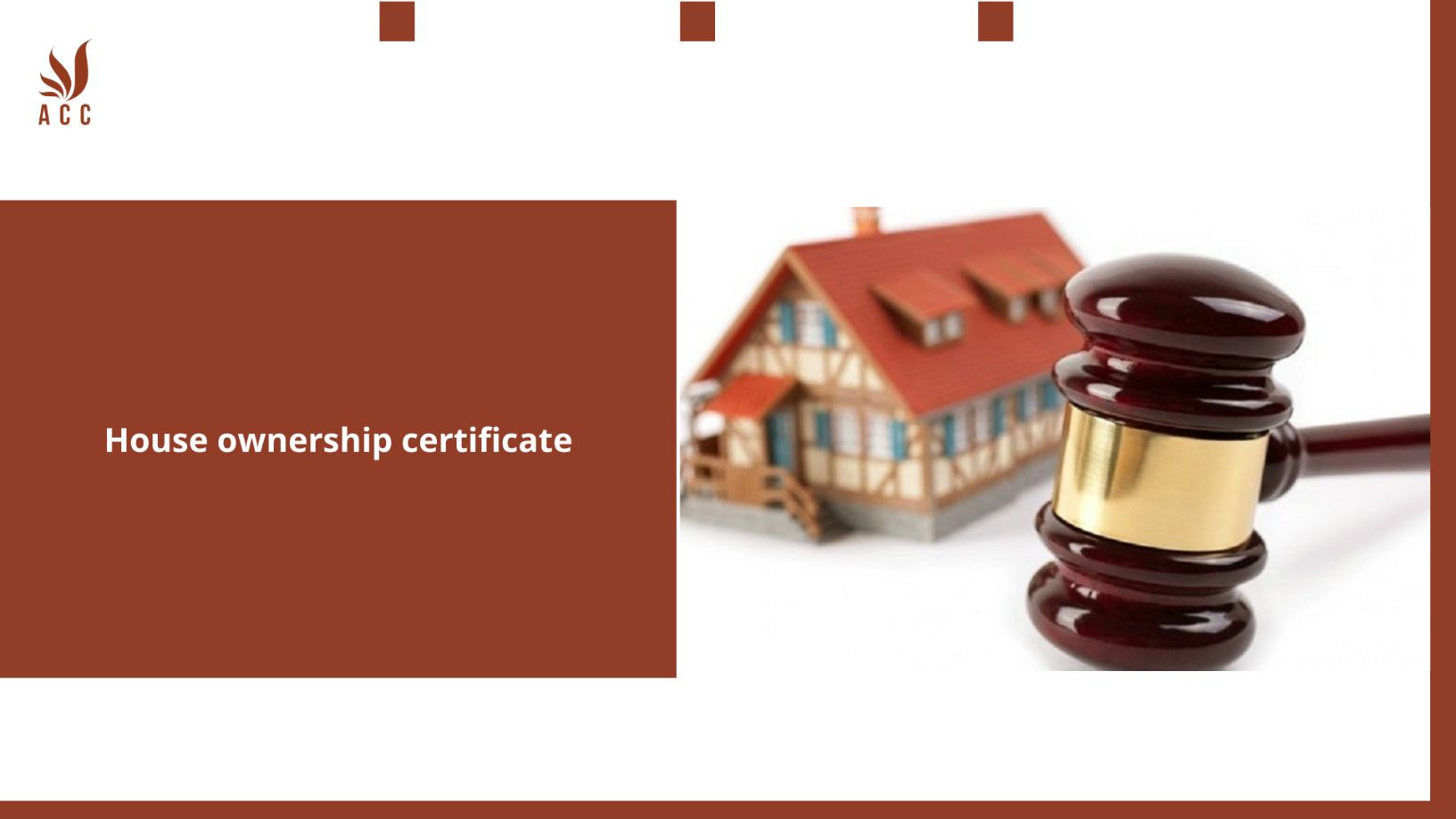A house ownership certificate, also known as a property ownership certificate or title deed, is an official document that serves as proof of ownership for a specific house or real estate property. It provides information about the property, including details about the owner, property boundaries, and any encumbrances or restrictions on the property. Here's what a typical house ownership certificate may include:

1. Property Description:
This section provides a detailed description of the property, including its address, size, dimensions, and any identifying information.
2. Owner's Information:
The certificate identifies the owner of the property. This includes the owner's name, contact information, and often a unique identification or tax number.
3. Title Number:
A unique title or reference number is assigned to the property, making it easily traceable in official records.
4. Property Boundaries:
The document typically includes a legal description of the property's boundaries, often with reference to surveyor's marks, maps, or coordinates.
5. Encumbrances:
The certificate may list any encumbrances or restrictions on the property, such as mortgages, liens, easements, or covenants. These encumbrances can affect the owner's rights and responsibilities related to the property.
6. Legal Description:
This section provides a legal description of the property, including information about its location and reference to land survey data.
7. Date of Ownership:
The document often indicates the date when the ownership was registered or transferred to the current owner.
8. Signature and Seal:
The certificate is typically signed by a relevant government authority or agency and may bear an official seal.
9. When using ACC Law Firm's land-related services, entrepreneurs will receive
When using ACC Law Firm's land-related services, entrepreneurs will receive expert advice and assistance in navigating various legal aspects of land ownership and transactions. This includes guidance in property acquisitions, leases, zoning regulations, land use planning, and any other land-related legal matters. ACC Law Firm's team of experienced attorneys will provide personalized support to entrepreneurs, ensuring compliance with applicable laws and regulations, protecting property rights, and optimizing the value of their land investments.
10. Q&A
Question 1: What is a house ownership certificate?
Answer 1: A house ownership certificate, also known as a property ownership certificate, is a legal document that serves as evidence of an individual's or entity's ownership rights to a specific house or property. It provides information about the property, its location, and the registered owner's details.
Question 2: Why is a house ownership certificate important?
Answer 2: A house ownership certificate is essential because it:
- Confirms legal ownership and property rights.
- Provides security and protection against disputes and unauthorized property transfers.
- Facilitates property transactions, such as sales, leases, or mortgages.
- Acts as a reference for property tax assessments and government records.
Question 3: How do you obtain a house ownership certificate?
Answer 3: To obtain a house ownership certificate, you typically need to follow these steps:
- Purchase or inherit a property.
- Register the property with the relevant government authority.
- Complete the required documentation, including title deeds and legal forms.
- Pay any associated fees and taxes.
- Wait for the processing and verification of your ownership claim.
- Once approved, you'll receive the house ownership certificate.
Question 4: What should you do if you lose your house ownership certificate?
Answer 4: If you lose your house ownership certificate, you should:
- Report the loss to the relevant land or property registry office.
- Apply for a duplicate certificate, which often involves providing proof of your identity and ownership.
- Pay any fees or charges associated with obtaining a duplicate certificate.
- Keep the duplicate certificate in a secure place to prevent future loss or misuse.
Nội dung bài viết:






Bình luận